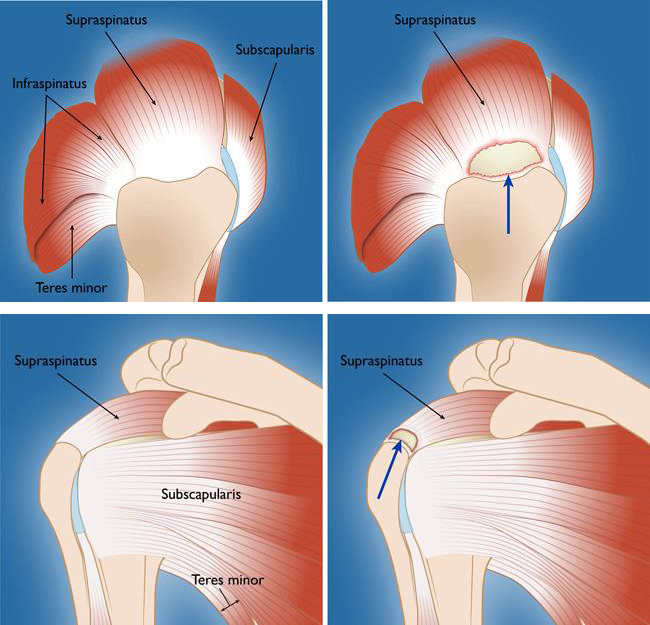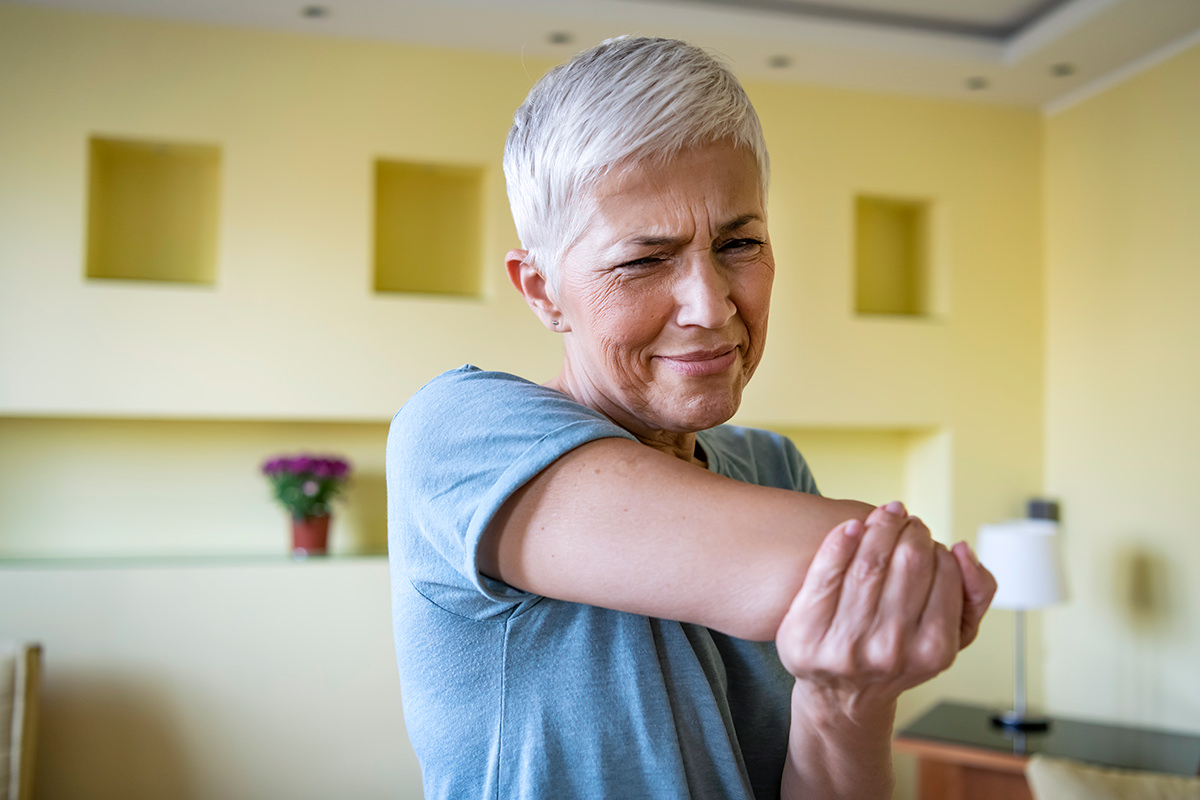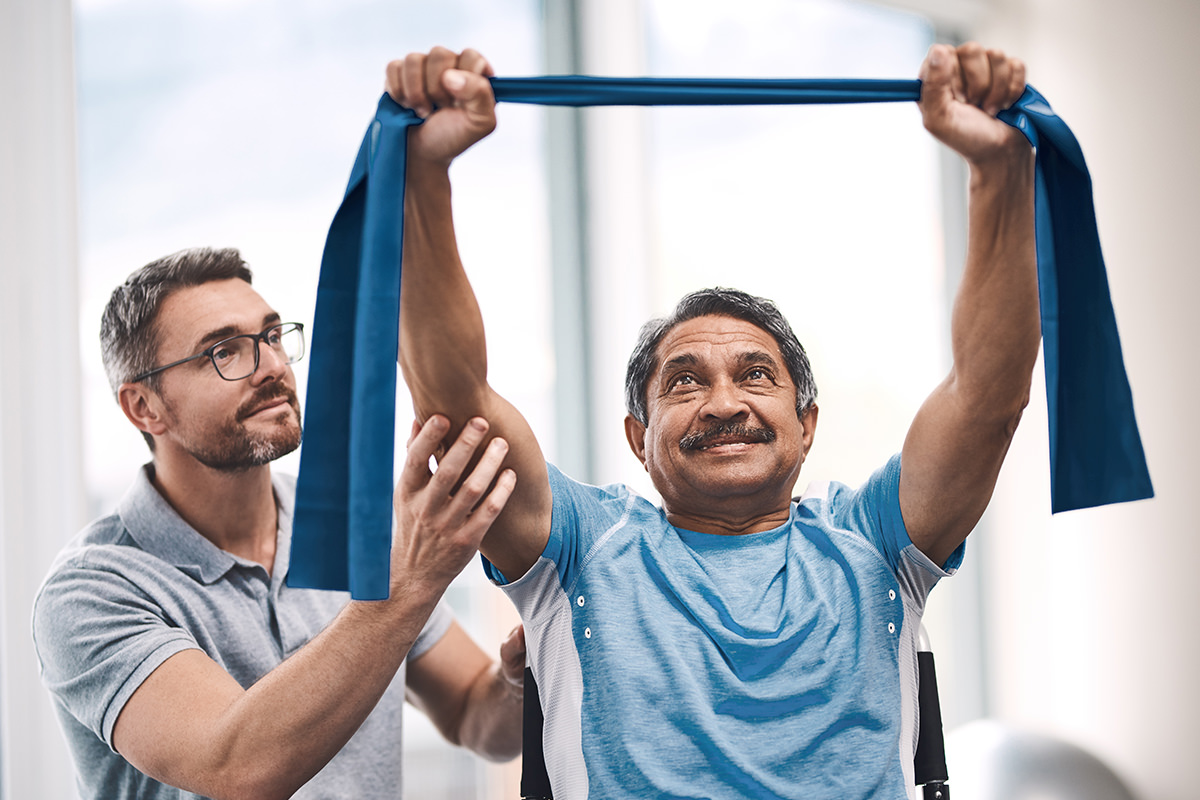Rotator Cuff Patient Education
Rotator Cuff Tear
The rotator cuff is a group of four muscles that come together as tendons around the head of the humerus and attach to the shoulder blade. The rotator cuff keeps the shoulder in socket and helps lift and rotate the arm.
Rotator cuff injuries occur when one or more of these tendons is partially or completely torn and no longer fully attaches to the humerus. Most tears occur in the supraspinatus.
- Partial tear – also called an incomplete there, this type of rotator cuff injury occurs when the tendon is frayed but not completely torn.
- Full-thickness tear – also called a complete tear, this injury occurs when the tendon is completely separated from the bone.
What causes a Rotator Cuff Tear?
Injuries and age-related tendon degeneration are the two main causes of rotator cuff tears.
Injury-related rotator cuff tears can include:
- Acute tears – tears resulting from falling on an outstretched arm, heavy lifting using a jerky motion, or another shoulder injury.
- Overuse tears – from repetitive stress after doing the same shoulder motions in sports or work activities.
Degenerative rotator cuff tears can be caused by:
- Wear and tear – over time, the tendons can be worn down naturally as we age.
- Bone spurs – when bone spurs form on the small bone at the top of the shoulder (the acromion), they rub against the rotator cuff causing it to weaken and tear.
- Lack of blood supply – as we age, blood supply to the rotator cuff lessens and makes it harder for our bodies to repair small injuries before they lead to bigger problems.
Symptoms of a Rotator Cuff Tear
Rotator cuff tear symptoms from an injury are felt earlier compared to those from degenerative causes. Your symptoms may include:
- Crackling sensation (crepitus) experienced when moving your shoulder in certain positions
- Pain at rest and at night made worse by lying on your affected shoulder
- Pain when lifting and lowering your arm or with specific movements
- Weakness during lifting or rotating your arm
Surgical and Non-Surgical Treatments for a Rotator Cuff Tear
Most rotator cuff tears are treated using nonsurgical treatments with surgical options used if you’re still experiencing shoulder pain and lack and motion. Possible treatments for your condition include:
Surgical Treatments for a Rotator Cuff Tear
- Acromioplasty – involving removing bone spurs on the small bone (acromion) at the top of your shoulder using open or arthroscopic techniques.
- Arthroscopic surgery – involving making two to three small shoulder incisions and inserting thin instruments to trim or smooth tendons with partial tears or to reattach tendons with full tears with the help of a guiding camera. This is a same-day or outpatient procedure.
- Open surgery – involving making a small incision in the front of your shoulder to see the rotator cuff directly to trim or smooth tendons for partial tears or to reattach tendons for full tears with the help of a guiding camera. This surgery requires an overnight hospital stay.
Non-Surgical Treatments for a Rotator Cuff Tear
- Anti-inflammatory drugs like ibuprofen and naproxen
- Cortisone steroid injection
- Rest and modifying your activities
- Physical therapy such as stretching exercises



